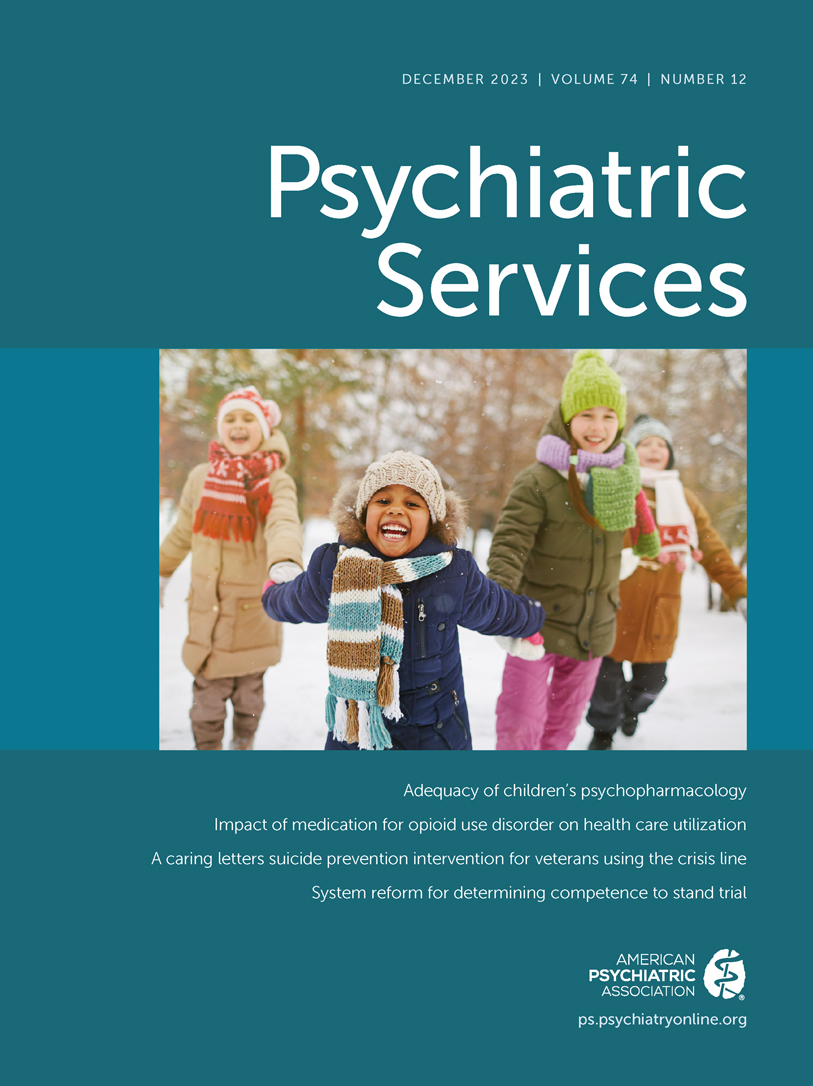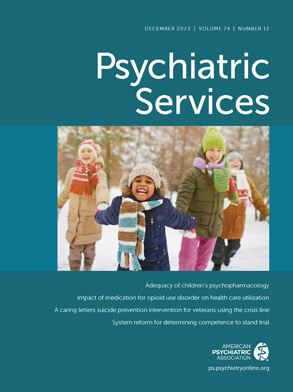Social, cultural, and political experiences influencing observed or reported clinical phenomena are frequently overlooked. Understanding the context of a patient’s experiences is crucial, as highlighted by statements from patients with psychotic disorders in Gordon et al.’s study (
1). The study details that enduring racism is correlated with quantified measures of cultural mistrust among Black Americans. Namely, major themes of paranoid content of the study’s Black participants included distrust, skepticism, and reactions to the oppressive experiences of racism.
The study’s preliminary findings suggest, as many scholars have argued, that cultural-historical context significantly mediates qualitative differences within paranoid content. For people of African descent living in the United States, daily context is dominated by weathering exposure to racial stress, trauma, and oppression rooted in anti-Blackness. Among Black patients with and without psychosis, these racist exposures can contribute to clinicians pathologizing culturally adaptive mistrust as psychotic paranoia. We draw upon this study’s findings to name the importance of understanding the ethnic cultural nuances of the Black American experience in culturally responsive care.
“Last night, I was walking up to the store, and a group of kids in their 20s were driving by, White kids.” At first glance, this statement seems to highlight racial elements in the speaker’s experience. The intended and perceived meanings are shaped by both the speaker’s and the interviewer’s beliefs about race, which are informed by a variety of types of racial literacies. Clinically, we might draw conclusions about this racial reference informed by homogenized understandings of the impact of anti-Black racism on those identified as Black Americans. Thus, findings from this and related research are often used to overgeneralize the diverse experiences of Black individuals, suggesting a homogeneous experience across this demographic group.
Although imperfections in racial categories are anticipated because of their nature as social constructs, disaggregating historical ethnic identities of people racially categorized as Black Americans is vital to operate thoughtfully within racial and ethnic classifications clinically. This scrutiny is particularly crucial when determining the relevance of these identities to patients with psychotic disorders—or determining whether patients have psychosis at all. Consequently, studies focusing on racial demographic characteristics necessitate careful interpretation and integration of ethnic identity into their findings.
Racially categorizing people of African descent as “Black or African American” fails to capture the differential temporal and ethnic experiences of racially oppressive environments. Present-day anti-Black racial oppression in the United States affects all people of African descent, but the nature of culturally adaptative mistrust is likely dependent on the chronicity and multigenerational timeline of exposure to anti-Black racism in this country. For instance, the presence, absence, or severity of culturally adaptive mistrust may be associated with the length of time an African-descended individual, ethnic group, or its ancestors have resided in the United States. The mental health impacts of racism have already been shown to be associated with migration experiences.
Discerning the distinct and overlapping experiences of Black Americans is clinically valuable. The Immigration and Nationality Act of 1965 directly contributed to an influx of immigrants from Asia, Africa, and other non-European regions alongside the gains made during the Civil Rights Movement and global decolonization efforts. These nuances matter when treating Black patients whose lineage dates to American enslavement compared with those whose lineage immigrated to the United States post-1960s, for example. An understanding of these differential exposures to a legacy of anti-Black racial oppression in the United States can pave the way for future research that disaggregates and honors the diversity of experiences of Black Americans. This research might gauge the depth and variation of culturally adaptive mistrust and emphasize its clinical relevance. Such insights would further underline the importance of using culturally sensitive assessment tools and adopting a trauma-informed approach in clinical explorations.
As Gordon et al. highlight in their study, racial minoritization clearly contributes to cultural mistrust among people of African descent living in the United States. The adaptative nature of cultural mistrust and the risk of embodied disparate health outcomes to Black Americans are driven by the acquisition of racial stress and racial trauma over a lifetime and through intergenerational transmission. Therefore, clinicians should attune future medical education, research, and practice for Black Americans to the variety of ethnic identities and histories and their exposures to American anti-Black racism.

